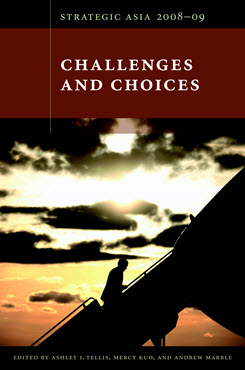Japan
Divided Government, Diminished Resources
This chapter assesses the last eight years of Japanese security policy and U.S.-Japan relations and draws implications for the next U.S. administration.
EXECUTIVE SUMMARY
This chapter assesses the last eight years of Japanese security policy and U.S.-Japan relations and draws implications for the next U.S. administration.
MAIN ARGUMENT
- Having historically relied on U.S. extended deterrence, Japan has also pursued “comprehensive security,” integrating military concerns with attention to economic, food, and other nontraditional security arenas.
- During the era of the Bush and Koizumi administrations, Japan expanded the country’s military capabilities as well as cooperation with the U.S.
- Japan’s major military concerns are China and the DPRK.
- Domestic politics and Japan’s comprehensive views of security continue to direct Japan away from rapid increases in security posture.
POLICY IMPLICATIONS
- If the U.S. can ensure confirmed denuclearization of the DPRK while coordinating with Japan on abductees and missiles, Japan will be less likely to lose trust in the U.S. or move radically to enhance the country’s military capabilities.
- If the U.S. maintains positive relations with both China and Japan, the temptation for either state to view the other as a threat will be reduced.
- If divided government continues in Japan, the country will be less likely to embrace enhanced military roles and missions, and
- If the U.S. and Japan can cooperate on security issues in a division of labor that includes non-military activities such as global warming, disaster relief, and pandemics, the two states will build greater harmony into the relationship. This harmony may also then benefit the military relationship.
Strategic Asia
The Strategic Asia annual edited volume incorporates assessments of economic, political, and military trends and focuses on the strategies that drive policy in the region. Learn more about Strategic Asia.


